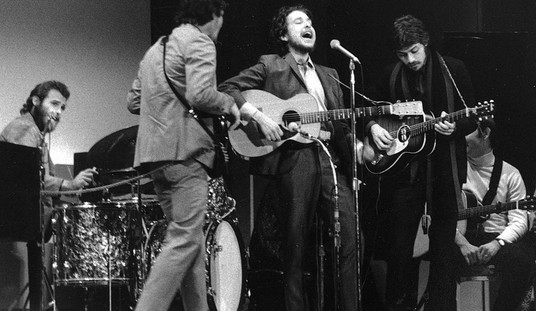 In the aftermath of the Baltimore riot, GOP presidential hopeful Jeb Bush wrote an op-ed in the Chicago Tribune on his vision for solving the problem. He hit upon the problem, but Bush’s Big Government roots caused him to miss a great opportunity.
In the aftermath of the Baltimore riot, GOP presidential hopeful Jeb Bush wrote an op-ed in the Chicago Tribune on his vision for solving the problem. He hit upon the problem, but Bush’s Big Government roots caused him to miss a great opportunity.
These events inevitably generate extensive discussion and analysis of how this could come to be in a country as great as ours. It shouldn’t be surprising that, in response, voices on the left tick off tired explanations for urban violence and anger, explanations that too often revolve around spending more on government programs or weakening criminal laws that make communities safer.
Trouble is, from the War on Poverty to the persistence of liberal big city mayors, the same government programs have been in place for over a half-century — and they have failed. We have spent trillions of dollars in the War on Poverty, and poverty not only persists, it is as intractable as ever. This represents a broken promise. And it feeds the anger of Baltimore.
then we go on to:
If our government leaders want to attack poverty, they should first acknowledge that an effective anti-poverty program is a strong family, led by two parents. The evidence on this is incontrovertible. And conservatives should not be afraid to say that as the family breaks down, so does opportunity. Our goal should be to build up families.
Keep this in mind. We’ll come back to it later.
From this statement Bush goes on:
Then we must take aim at our deeply failed education system. The schools in our cities are not underfunded. But they nevertheless fail to prepare their students for the demands of life — college, a job and the responsibilities of citizenship.
and
To do so requires policies that encourage people in the toughest neighborhoods to start up businesses. Reducing regulations, removing expensive licensing requirements for startups and cutting occupational fees would make a substantial difference and give self-starters a chance to create high-paying jobs and hope where they live.
It can get better. I know it because I’ve seen it as governor, where a combination of education reforms and pro-growth policies helped raise household incomes up and down the income ladder — and gave a generation of children a real chance to rise up.
While the problems Bush lays out are real, they only serve to obscure the root causes liberals are so fond of finding. Baltimore, for instance, ranks either third (or 20th if you go for PunditFact, PolitiFact’s spinoff agenda driven, dishonest hairsplitting) in the nation in per pupil spending. It is difficult to see how you improve such a profoundly corrupt and incompetent organization without resorting to summary executions. It is also hard to find a federal role, because Bush is running for president and not for governor of Maryland or mayor of Baltimore, in reducing regulations, etc., etc.
Let’s go back to the first observation that Bush made: “an effective anti-poverty program is a strong family, led by two parents.” Bush has said this before. Last year before Bush’s views on homosexual marriage had evolved, he said this:
“A loving family taking care of their children in a traditional marriage will create the chance to break out of poverty far better, far better than any of the government programs that we can create.”
Which sent the never-very-lucid and but very homosexual New York Times columnist Charles Blow (yes, that’s really his name) into a frenzy.
But Bush is right. Unless a child is raised in a stable family, composed of a man and a woman joined permanently in marriage, the odds of their success in life drops off markedly. Yet the federal government, via its various poverty programs, rewards low-income women for having children and having them out of wedlock. A single adult will not qualify for much assistance. A single mother, on the other hand, has a veritable cornucopia of government programs (and private charity) opened to her. In fact, if she is diligent and gets a job and gets promoted she may very well find herself losing eligibility for programs. [mc_name name=’Rep. Paul Ryan (R-WI)’ chamber=’house’ mcid=’R000570′ ] on the Michael Medved Show:
… We spent nearly $800 billion on nearly 100 programs for the poor, on welfare programs, and it’s getting worse. More people in poverty—the poverty rate is at a generational high, and with these new programs the President has put in place like Obamacare, what we’re learning is that more people will stay in the poverty trap. . . .
What the government has done for the last generation is they see a problem and create a new government program in Washington and they layer it on top of the other ones. And this incredibly complex bureaucracy wastes a lot of money, but it also sets up a perverse incentive that we call the “poverty trap,” where people get on these programs and if they try to leave these programs to go work at a job, they are worse off. And so it sort of traps them where [they] are and freezes them in place, and that’s why we have economic immobility.
Even assuming the Baltimore public school system was a paragon of competence and efficiency, the broken family structure creates an environment where absenteeism is rife for a variety of reasons. Oddly enough, the federal government creates a system of perverse incentives in education, much like it does anywhere else. If you are a single mother and you attachment to the municipal teat is firmly linked to your child, you will do your best to monetize that resource. A child with behavioral problems or one that is deemed a “special education” student can bring in an average of $646 per month via the Social Security Administration’s Supplemental Security Income. None of this is a Daniel Patrick Moynihan critique of the plight of black America. The social pathologies of broken families, out of wedlock childbearing, poverty program dependence, and gaming poverty programs for fun and profit is just as visible in Appalachia as it is in any inner-city. The difference being the drug of choice is crystal meth rather than crack cocaine and the low population density makes it difficult for people lacking ambition to gain the critical mass necessary for gang activity or rioting.
Rahul Ghandi, vice-president of the Indian National Congress party made a statement a while ago that caused him to be made fun of on the internet (that alone should tell you he’s a pretty smart guy). “Poverty,” he said, “is a s just a state of mind. It does not mean the scarcity of food, money or material things. If one possesses self-confidence, then one can overcome poverty.” He’s right. Many of us have been broke at one time or another. All you need to overcome being broke is cash. Poverty, on the other hand, is a state of the soul. It is an outlook on life. Poverty flourishes like a hot-house orchid in a home headed by a single parent in a neighborhood where intact families headed by two parents (of complementary sexes) are something of a sideshow attraction. It becomes multi-generational and a way of life when a parent has a financial incentive to not better themselves and to encourage their children to fail in school because that failure brings a check with it.
As a prescription for fighting poverty, Bush’s op-ed is a disappointment. It is really pap. Obviously he recognizes the cause but his default reaction is to sneak past if — for fear of offending his friends who are campaigning for homosexual marriage or for fear of offending single parents? — and he goes straight way to a problem that has nothing to do with eradicating poverty and one which, unlike the issue of strengthening families, the federal government should stay the hell out of. There is nothing new or particularly conservative in his column and as such it serves as a perfect metaphor for his candidacy.














Join the conversation as a VIP Member